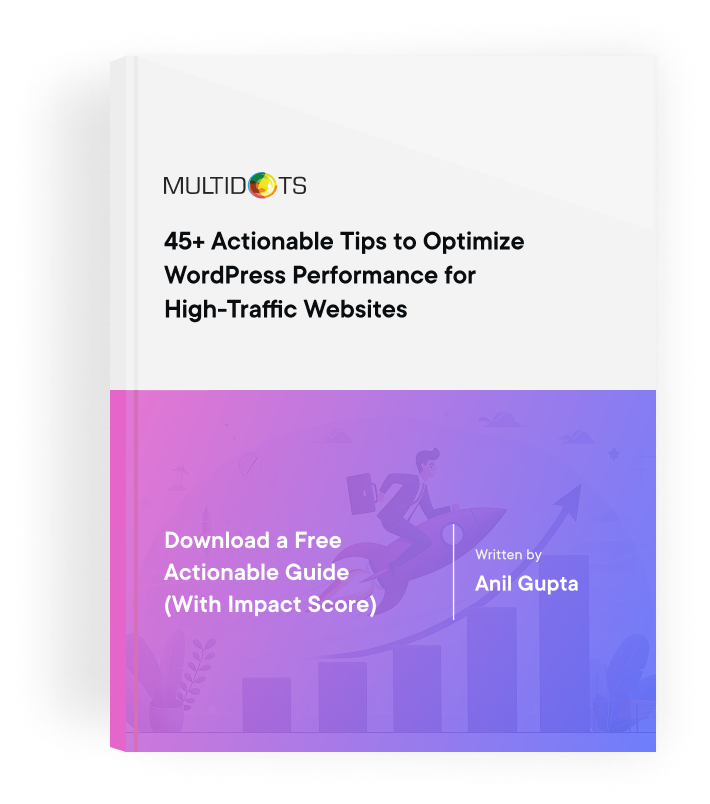The Future After Drupal 7: Should You Go With Drupal 10 or WordPress?
The Ultimate CMS Comparison: Drupal 7, Drupal 10, and WordPress
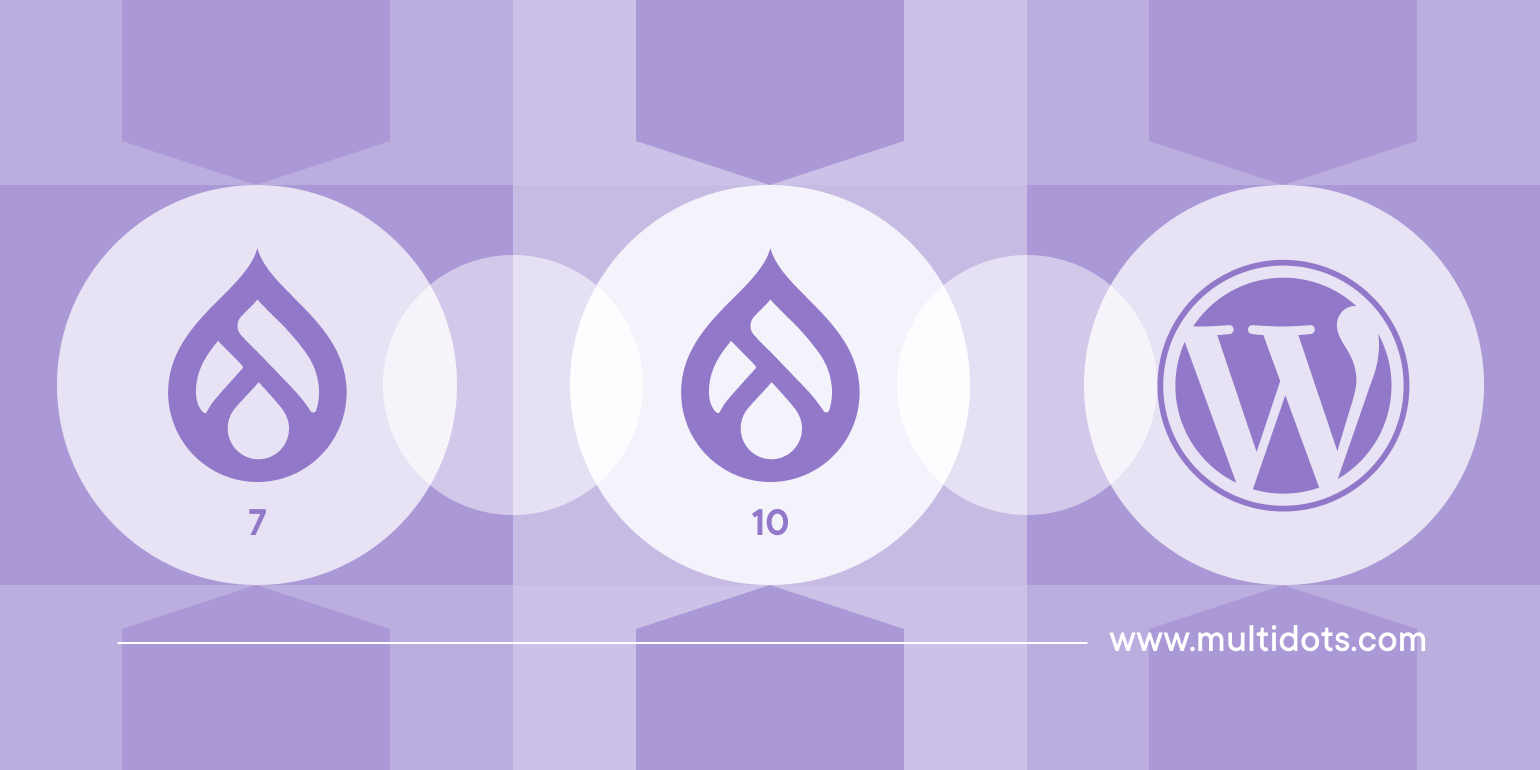
Table of Contents
Drupal 7 will reach its end-of-life (EOL) on January 5, 2025, leaving users with no more security updates after that date. For those using Drupal 7, upgrading to Drupal 10 seems like the natural next step.
However, this transition also presents an opportunity to reassess the entire platform choice, with many developers considering whether WordPress might be a viable alternative.
Both Drupal 10 and WordPress have evolved significantly, offering different advantages depending on project needs, complexity, and scalability. Each platform offers distinct benefits in terms of customization, security, and scalability, depending on your project’s goals.
While Drupal 10 brings major enhancements, WordPress remains the most popular content management system (CMS), especially for users prioritizing ease of use on top of scalability and security.
Here’s a table to put everything in perspective:
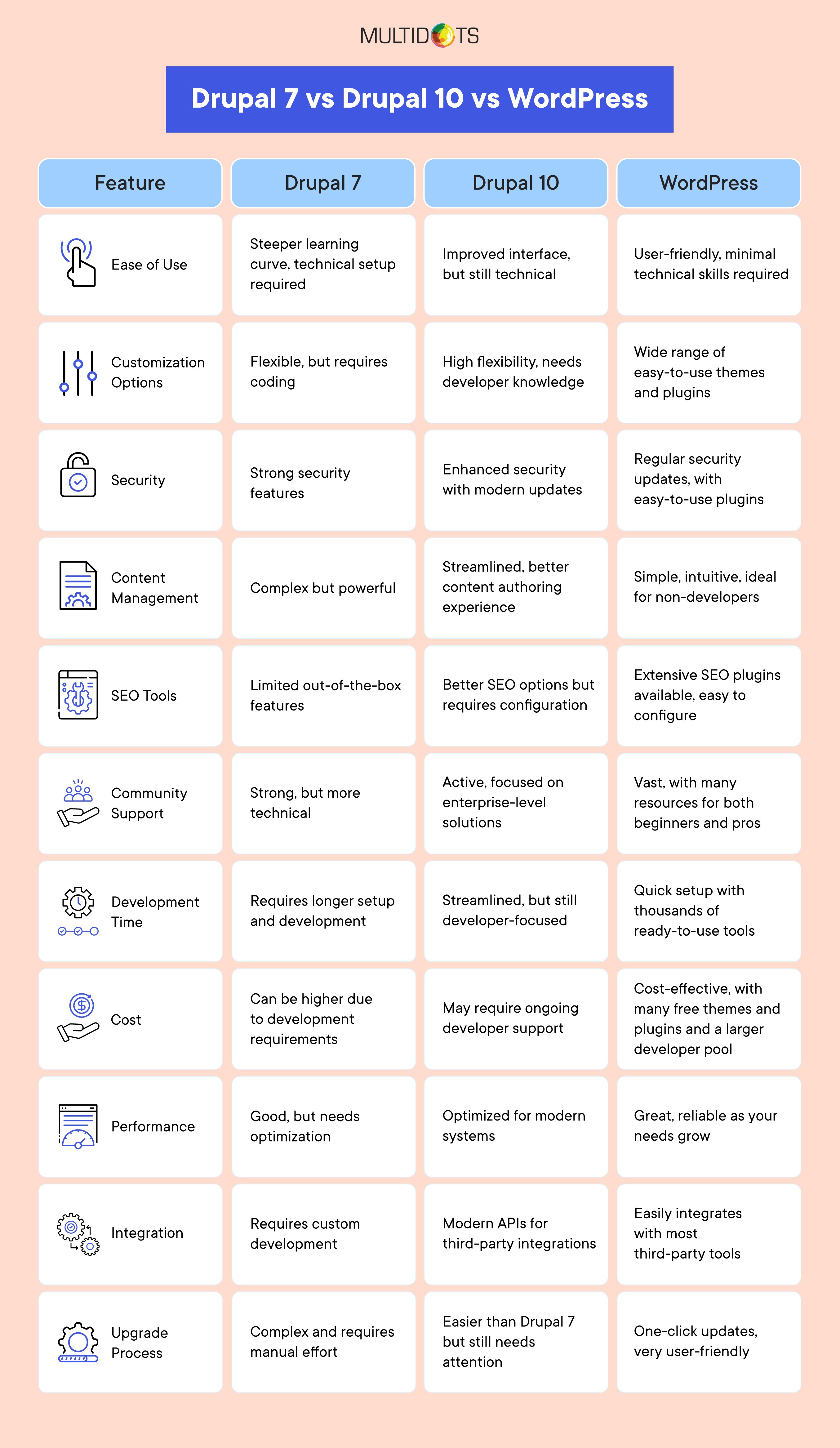
So, what’s the right move?
In this article, let’s look at a developer’s comparative analysis of Drupal 7, Drupal 10, and WordPress to help you choose the best platform for your business.
Drupal 7 vs Drupal 10: What’s New and What’s Missing
Drupal 10 significantly improves over Drupal 7 in terms of performance, scalability, and developer experience. With its adoption of modern frameworks like Symfony 6 and PHP 8.1, Drupal 10 delivers faster load times and better handling of high-traffic websites.
The new Olivero and Claro themes enhance accessibility and usability, while CKEditor 5 simplifies content creation. The streamlined web development process and modern JavaScript components reduce the learning curve and improve productivity.
However, there are some major trade-offs.
Drupal 10 has a smaller module ecosystem than Drupal 7, limiting customization options, especially for niche functionalities. While its core features have been upgraded, third-party module support remains in development, affecting flexibility for developers who rely on extensively contributed modules.
For larger websites, the improved scalability and speed in Drupal 10 can drastically enhance user experience, but the lack of mature modules still requires custom development. This can drive up the developer’s costs.
Moreover, Drupal 10's smaller community means fewer immediate security patches and updates compared to Drupal 7’s long-established ecosystem. As a result, while Drupal 10 is a modern, more efficient platform, the transition may involve trade-offs for large-scale projects with certain unique needs.
Drupal 7 to WordPress: Why is it Better?
Upgrading from Drupal 7 to WordPress offers several key advantages over migrating to Drupal 10, particularly in terms of ease of use, customization, and long-term maintenance.
1. Ease of Use
WordPress is widely known for its user-friendly interface. Its intuitive block editor allows even non-developers to build websites with minimal technical knowledge. This makes WordPress significantly easier to learn and operate than Drupal 10, which has a steeper learning curve due to its more complex framework and architecture.
You can look forward to shorter employee training cycles and increased productivity in content management workflows.
2. Customization
WordPress boasts a vast ecosystem of themes and plugins, offering over 59,000 plugins that extend functionality in its directory without needing heavy custom coding. Compared to WordPress, Drupal is also highly customizable, its modules require more developer expertise.
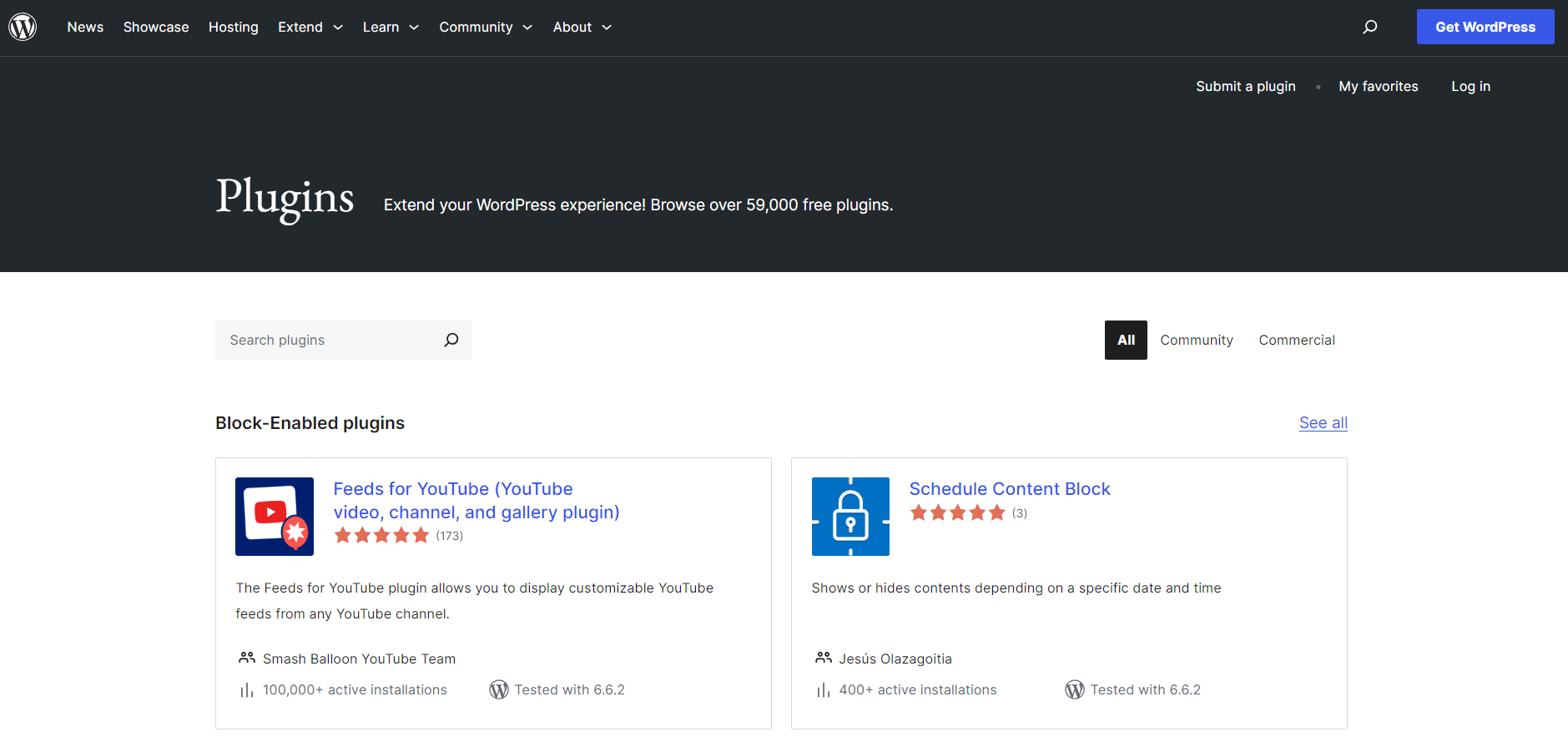
WordPress offers over 59,000 plugins in the official repository alone (source)
Often teams either get a full-time Drupal developer in-house or occasionally work with agencies. This boosts maintenance costs.
On the flip side, you can do most of the things on WordPress yourself, including giving your website a more aesthetic feel without compromising usability. Even if you need a developer for something, WordPress developers are abundant and quite affordable.
3. Extensibility
From SEO tools to e-commerce features like WooCommerce, WordPress has an extensive library of ready-to-use plugins. Most of your customized requirements can be fulfilled with a free or premium plugin.
Additionally, WordPress also makes it simple to connect external software via APIs.
In contrast, Drupal 10 still has a smaller module ecosystem compared to its predecessor Drupal 7, meaning some custom functionality may require more time and resources. This can make it difficult for businesses and enterprises to move at a faster pace regardless of budget.
4. Security
Both platforms offer robust security features. It may seem that WordPress is quite more vulnerable than Drupal, but that’s because most of the websites on the internet run on WordPress.
Moreover, WordPress’ security vulnerabilities primarily stem from outdated or poorly managed plugins. The automatic updates to the core protect all your organizational data from corruption and theft.
There are plenty of premium security plugins like Wordfence and Sucuri that make it easier for teams to add new layers of security to keep their platforms safe. Combined with an active global community, WordPress edges out Drupal 10 in terms of security.
5. Community
As we mentioned a few times earlier, WordPress has a massive, active community, making it easy to find tutorials, plugins, and support. This contrasts with Drupal's smaller community, which could make finding expert help for Drupal 10 harder and more expensive.
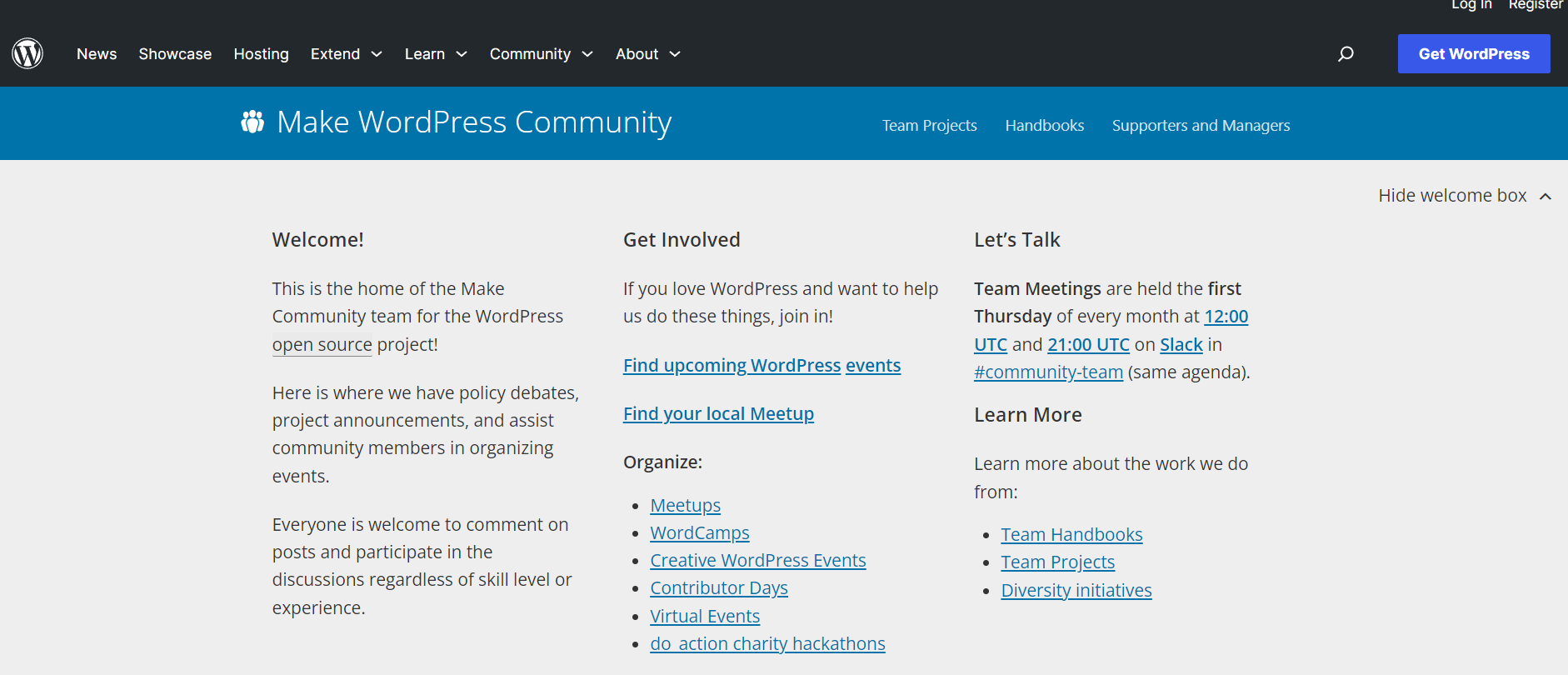
The Make WordPress Community is supportive for all levels of users (source)
In summary, for Drupal 7 users, upgrading to WordPress often provides a smoother, more cost-effective transition compared to Drupal 10, especially for users seeking ease of management and extensive plugin support.
Next Steps: Migrating from Drupal 7 to WordPress
With Drupal 7’s end-of-life approaching, keeping your CMS up to date is crucial. Migrating to WordPress offers several advantages over Drupal 10, including ease of use, a vast plugin ecosystem, and more affordable development costs.
WordPress also provides better accessibility for non-developers, enabling quicker site updates and easier customization.
Multidots can assist businesses in migrating from Drupal to WordPress efficiently, ensuring a seamless transition with minimal downtime.
Need to know how much WordPress can save you.
Contact us today for a free consultation and future-proof your website.
FAQs
-
What are the key differences between Drupal 7 and Drupal 10 in terms of performance and scalability?
Drupal 10 offers improved performance and scalability with modern frameworks like Symfony 6, faster load times, and better handling of complex, high-traffic websites compared to Drupal 7.
-
Migrating to WordPress is generally easier, thanks to more migration tools and fewer architectural changes, while Drupal 10 migration requires adapting to a completely new framework.
-
Drupal 10 has a steeper learning curve, requiring more technical knowledge of frameworks like Symfony. WordPress is easier for beginners and non-developers due to its intuitive interface and larger support community.
-
After EOL, Drupal 7 will no longer receive security updates, leaving websites vulnerable to attacks, data breaches, and compatibility issues with modern infrastructure.
-
Migrating to WordPress is often more cost-effective, with lower development costs and easier availability of resources. Drupal 10 migrations tend to be more expensive due to the complexity and technical expertise required.
Feel free to schedule a quick call with our migration expert.
Contact Us